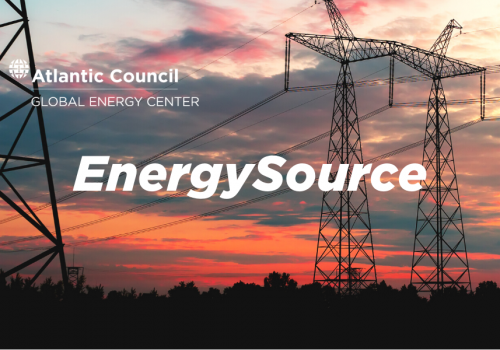This blog is the second in the author’s two-part series on Ukraine’s energy future
As Ukrainians and the international community discuss how to rebuild and strengthen the country after the war, one promising option is to invest in clean energy to help Ukraine become an exporter to Europe. The nation already has the tools, minds, and infrastructure needed to do this, and pursuing this option would strengthen ties between Ukraine and Europe.
Much has already been done in this direction. Beginning in 2019, the Organisation for Economic Co-operation and Development (OECD) created a program to help Ukraine reform and strengthen its energy sector under a two-year plan focused on improving corporate governance within Ukraine’s state-owned energy enterprises, increasing investment in the sector, and strengthening anti-corruption measures. The OECD credits Ukraine with using new finance for wind and solar projects.
The benefits to Ukraine
As Ukraine rebuilds from the devastation brought upon it by Russia’s deliberate targeting of civilian infrastructure, incorporating state-of-the-art energy programs will help the country with its European integration efforts.
Pursuing clean energy will help Ukraine’s economic recovery and create jobs. Moreover, clean power could help Ukraine permanently end its dependence on Russian gas. Finally, it would harmonize Ukrainian’s economy with the European Union’s clean energy strategies, helping Ukraine in its integration with the bloc.
The gains for Europe
Ukrainian decarbonization would contribute to Europe’s overall climate objectives. A recent Atlantic Council report describes the country’s potential to become a European energy hub. While Ukraine diversifies its power mix to strengthen its energy security, the European continent is following a similar path to reduce its dependence on Russian gas. To ensure mutual success, it is vital the two collaborate and push one another toward cleaner energy systems. This includes through robust interconnection of the two partners’ respective energy systems.
In addition to the country’s potential for clean power exports across an interconnected grid, Ukraine has significant reserves of clean energy minerals that can be employed towards Europe’s transition. This would help accelerate Europe’s transition and puts Ukraine in a prime position to contribute to Europe’s fight for energy independence.
A win-win
Since the Revolution of Dignity in 2013, Ukraine has hoped to reap the benefits of partnership with the West. However, the underdeveloped state of the Ukrainian economy and the country’s persistent corruption issues have limited Ukraine’s ability to contribute to the Euro-Atlantic project.
Now, after years of reforms, Ukraine is in a position to become a valued part of the European family. Additional anti-corruption measures are needed to promote greater transparency and can help Ukraine achieve European standards of government. These policies, in turn, will encourage international investors to take a greater interest in Ukraine and further strengthen the Ukrainian energy sector.
Enhancing the renewable energy industry in Ukraine will help the country’s economy grow, as it will create more job opportunities, and it will allow Ukrainians to share their knowledge and expertise with Europe. This, in turn, will help Europe on its path toward its climate targets, with a direct Ukrainian role in these efforts.
The future is bright for Ukraine, and the West should take note. Success in this endeavor would benefit not only Ukraine, but also European and global climate action.
Mark Temnycky is an accredited freelance journalist covering Eastern Europe and a nonresident fellow at the Atlantic Council’s Eurasia Center. He can be found on Twitter @MTemnycky
Meet the author
Related content
Learn more about the Global Energy Center

The Global Energy Center develops and promotes pragmatic and nonpartisan policy solutions designed to advance global energy security, enhance economic opportunity, and accelerate pathways to net-zero emissions.
Image: Ukraine flag. (Markus Winkler, Unsplash) https://unsplash.com/photos/gg7rzI4-wgc





